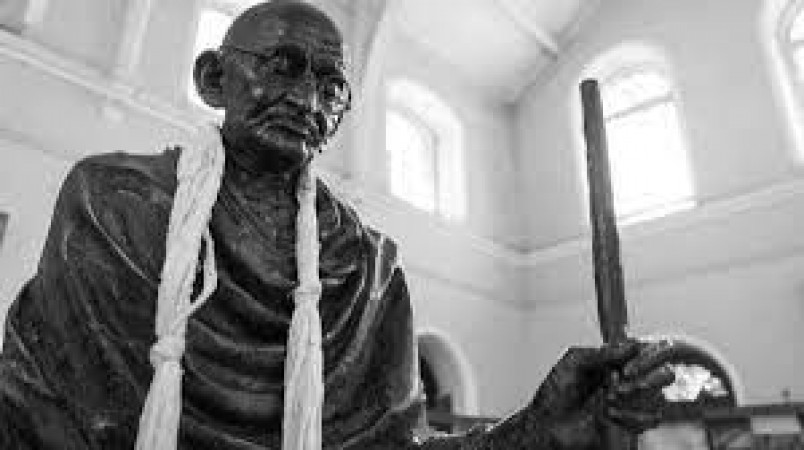
In a world often dominated by conflict and discord, the significance of celebrating October 2 as the International Day of Non-Violence cannot be overstated. This day holds a special place in history and serves as a tribute to a visionary leader who advocated for peace, harmony, and the power of non-violent resistance. Let's delve into the profound significance of this day and the lasting impact it has had on shaping the course of history.
October 2 marks the birthday of Mahatma Gandhi, a towering figure whose life and philosophy have left an indelible mark on the world. Gandhi, also known as the "Father of the Nation" in India, was a pioneer of non-violent civil disobedience as a means to achieve social and political change. His philosophy, rooted in principles of truth, love, and compassion, continues to inspire individuals and movements worldwide.
Shiv Sena MP Sanjay Raut: Sharad Pawar Unlikely to Repeat Nephew's BJP Alliance Mistake
Jammu and Kashmir Bank Chief Manager Dismissed for Alleged Links to Pakistan's ISI
Shiv Sena Leader Predicts Change of Guard in 2024 Elections, Hails Opposition's Prospects
The International Day of Non-Violence is a global observance aimed at promoting the values of peace and non-violence. It serves as a reminder that conflicts can be resolved through dialogue, understanding, and empathy rather than through aggression and hostility. By celebrating this day, we pay homage to the notion that change can be achieved without resorting to violence, leading to a more harmonious world for present and future generations.
To truly understand the significance of October 2 as the International Day of Non-Violence, we must look back at history. Mahatma Gandhi's leadership during India's struggle for independence highlighted the power of non-violent resistance against colonial rule. His philosophy guided countless individuals and movements around the world, including the American civil rights movement led by Martin Luther King Jr.
Gandhi's principles of non-violence and civil disobedience have transcended time and borders, leaving an enduring legacy of social change. His methods have been adopted by leaders and activists across various causes, from environmental conservation to gender equality. The International Day of Non-Violence celebrates this legacy, reminding us that even in the face of adversity, peaceful and constructive actions can lead to transformative results.
In a world where conflicts often arise from differences in culture, religion, and ideology, the International Day of Non-Violence serves as a unifying force. It encourages people of all backgrounds to come together in pursuit of a shared goal: a world free from violence and oppression. This day fosters a sense of global unity, transcending divisions and promoting the idea that lasting change can be achieved through collaboration and understanding.
Another crucial aspect of celebrating October 2 as the International Day of Non-Violence is the emphasis on education and awareness. Schools, universities, and organizations use this day to educate the younger generation about the importance of non-violence and its potential to bring about positive change. By imparting these values to future leaders, we pave the way for a more compassionate and just world.
The International Day of Non-Violence is not only about commemorating the past; it is also about inspiring future generations to take up the mantle of non-violent activism. As the world continues to grapple with complex challenges, the legacy of Mahatma Gandhi reminds us that peaceful solutions are within reach. By celebrating this day, we motivate individuals to seek alternatives to violence and to believe in the power of collective action. The significance of celebrating October 2 as the International Day of Non-Violence extends far beyond a mere observance. It is a tribute to the enduring legacy of Mahatma Gandhi and his philosophy of non-violence. This day serves as a beacon of hope, a reminder that positive change can be achieved through peaceful means, and a call to action for individuals around the world to embrace the principles of truth, love, and compassion.